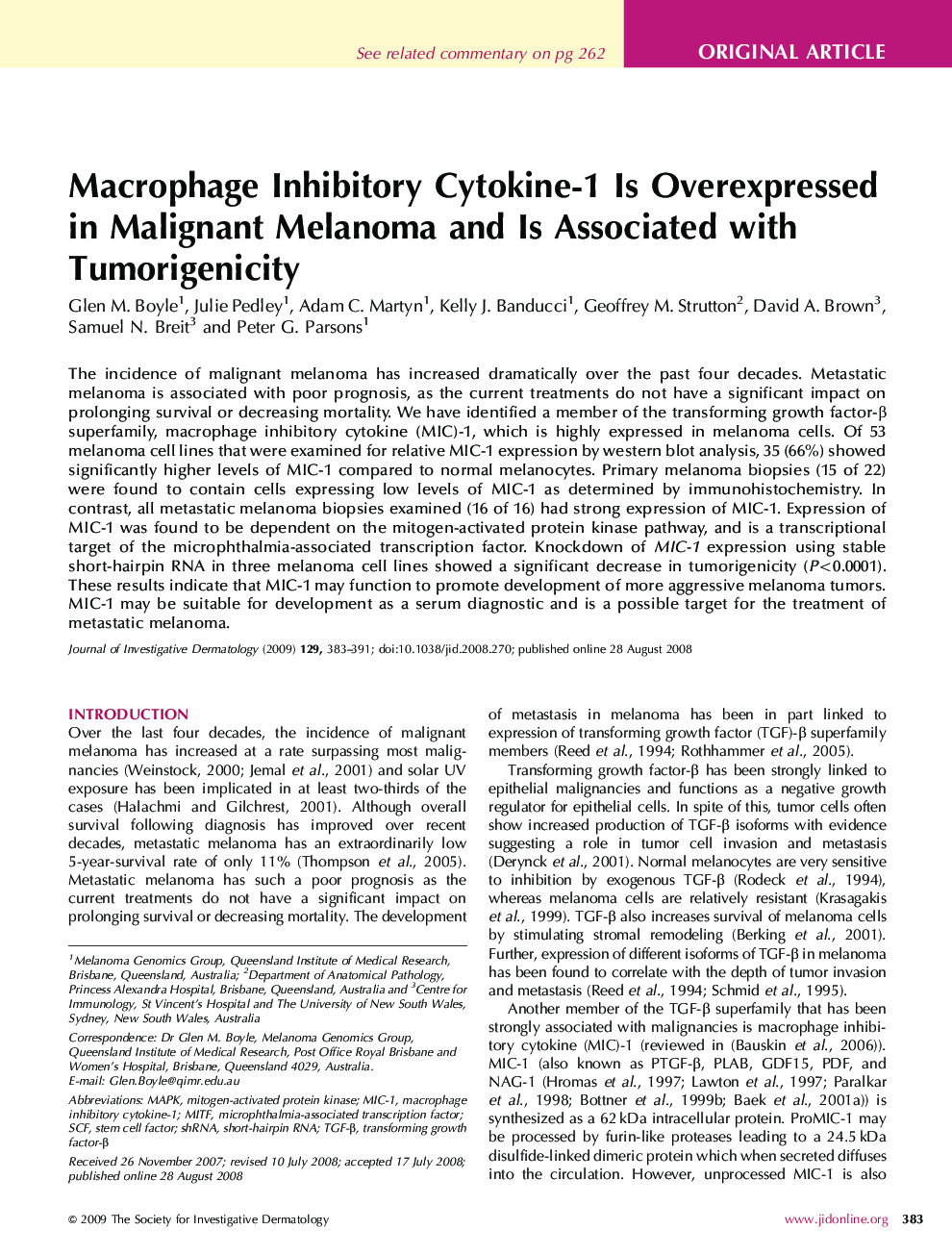| کد مقاله | کد نشریه | سال انتشار | مقاله انگلیسی | نسخه تمام متن |
|---|---|---|---|---|
| 3217258 | 1203596 | 2009 | 9 صفحه PDF | دانلود رایگان |

The incidence of malignant melanoma has increased dramatically over the past four decades. Metastatic melanoma is associated with poor prognosis, as the current treatments do not have a significant impact on prolonging survival or decreasing mortality. We have identified a member of the transforming growth factor-β superfamily, macrophage inhibitory cytokine (MIC)-1, which is highly expressed in melanoma cells. Of 53 melanoma cell lines that were examined for relative MIC-1 expression by western blot analysis, 35 (66%) showed significantly higher levels of MIC-1 compared to normal melanocytes. Primary melanoma biopsies (15 of 22) were found to contain cells expressing low levels of MIC-1 as determined by immunohistochemistry. In contrast, all metastatic melanoma biopsies examined (16 of 16) had strong expression of MIC-1. Expression of MIC-1 was found to be dependent on the mitogen-activated protein kinase pathway, and is a transcriptional target of the microphthalmia-associated transcription factor. Knockdown of MIC-1 expression using stable short-hairpin RNA in three melanoma cell lines showed a significant decrease in tumorigenicity (P<0.0001). These results indicate that MIC-1 may function to promote development of more aggressive melanoma tumors. MIC-1 may be suitable for development as a serum diagnostic and is a possible target for the treatment of metastatic melanoma.
Journal: Journal of Investigative Dermatology - Volume 129, Issue 2, February 2009, Pages 383–391